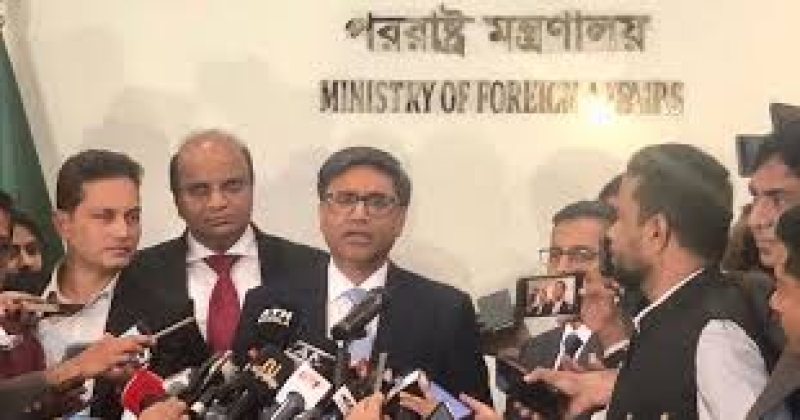- Ctg Port’s historic milestone in 2025 container handling, revenue |
- NBR Probes Bank Records of 100 Exporters Over Bond Abuse |
- Hadi murder case: Sanjay, Faisal give ‘confessional’ statements |
- Islami Bank organizes orientation for 1000 Trainee Assistant officers |
- 2025: People’s Resistance Against Hydro Projects in Himalaya |
India Seeks Closer Ties with Bangladesh: Misri to CA

Indian Foreign Secretary Vikram Misri, during his visit to Dhaka, expressed New Delhi's eagerness to enhance its engagement with Bangladesh's Interim Government and collaborate closely on a wide range of issues to strengthen bilateral ties.
"We are fully committed to increasing engagements, as we believe it will be mutually beneficial for both nations," Misri stated during a meeting with Chief Adviser Professor Muhammad Yunus at the State Guest House Jamuna in Dhaka. "Our goal is to continue from where we left off," he added, emphasizing the importance of advancing the longstanding relationship between the two countries.
In the 40-minute meeting, key issues discussed included regional cooperation, the situation of minorities, misinformation campaigns, the exile of former Prime Minister Sheikh Hasina to India, and the July-August mass uprising in Bangladesh, according to sources from the Chief Adviser’s office.
Professor Yunus reaffirmed the strength of India-Bangladesh ties, describing the relationship as "very solid" and "close." He urged India to help dispel any misunderstandings that have recently clouded the partnership.
One of the key points raised by Yunus was the political situation surrounding Sheikh Hasina, who fled to India on August 5 following the collapse of her 15-year rule. "Our people are concerned about her continued statements from India, which are causing tensions," Yunus said.
Misri, who earlier held bilateral talks with Bangladesh’s foreign minister, shared that he had closely monitored the developments in Bangladesh during the July-August mass uprising. He acknowledged the significant role played by students, the working class, and ordinary citizens in calling for an end to Hasina's corrupt regime.
"The aspirations of the people who took part in the uprising must be upheld. This is a new Bangladesh," Yunus said, highlighting the reform initiatives undertaken by the Interim Government.
Misri also mentioned that Indian Prime Minister Narendra Modi was one of the first global leaders to congratulate Professor Yunus after he assumed office. “We wish you every success,” Misri added, while noting that the media narratives in India about Bangladesh might differ from the government's official perspective.
Addressing concerns about India's political engagement in Bangladesh, Misri firmly stated, “It’s a misconception that India supports any one particular party. We are here to engage with everyone in Bangladesh."
On regional issues, Yunus called for greater cooperation between the two countries, particularly in areas like flood and water management. He also urged India to support the revival of the South Asian Association for Regional Cooperation (SAARC), stressing the importance of fostering a prosperous future for the entire region.
Misri responded by affirming India's continued engagement with SAARC, despite the existing challenges. He also praised Bangladesh's commitment to safeguarding the rights of all citizens, regardless of their background. "We are all one family. We must work together," Yunus concluded.
Misri further highlighted that India had recently doubled the number of visas issued to Bangladeshis and planned to increase this number further in the coming months, signaling a positive step towards greater connectivity and cooperation between the two nations.

